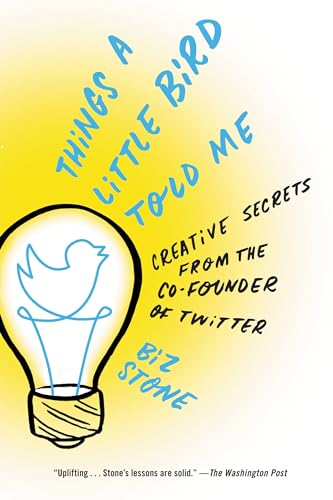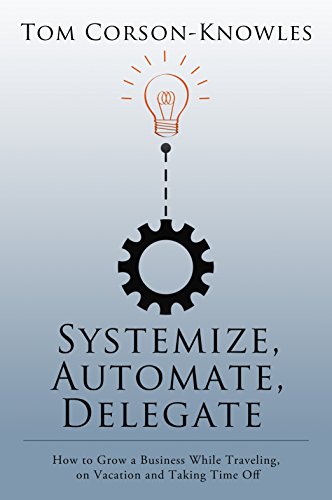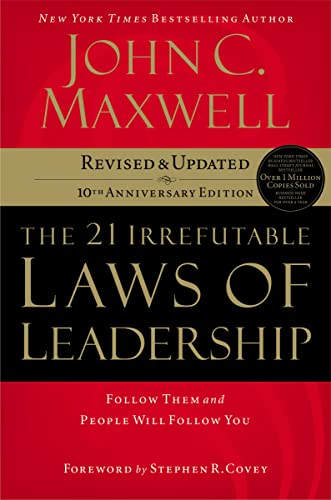Hone your leadership skills by learning from the experts.
We gathered the 24 best leadership books of all time recommended by 13 experts.
See them below.
Written by Twitter co-founder Biz Stone, Things a Little Bird Told Me is a master-class in storytelling that needs to be read by technology founders or anyone wanting valuable insights into business and life.
Each chapter is a story with a particular lesson in values, leadership, creativity, or some other piece of wisdom he learned during the ups and downs of his technology and life journey. Sharing this makes me want to read the book again.
Written by the founder of SEO Moz, this book is a must read book for anyone that is thinking of taking venture capital.
Rand explains clearly and simply what drives VC investment and how those goals are often misaligned with founders and startups. Rand’s honesty in sharing his successes, failures, and values is easy to connect to and inspiring for founders.
As any good leader knows, having a good email list is key.
This book not only helps the beginners out there but gives tips to the seasoned leaders looking to expand the reach and effectiveness of their email list.
As leaders, we often feel so bogged down with everything on our plate. Have you truly sat down and looked at your schedule and how much work you actually do in a day or week?
This book not only shocks you with the Time Tracking Exercise it provides but then helps you be more productive with your time and make your life as a leader even easier.
Do you own your business or is your business owning you?
Leaders need to step back and start systemizing, automating, and delegating their tasks or the business will own them for the rest of their lives. Any leader needs to read this book and get their life on the right track.
We can’t use industrial age techniques in the information age.
In this book, Pink scours scientific journals and academic studies for great insights that business leaders can use to motivate ourselves and our teams to greatness.
His main points are that knowledge workers are most motivated by one or more of three factors: Mastery, autonomy, and purpose.
In our day-to-day lives and in our workplaces, habits drive results.
Good habits improve quality, innovation, and productivity, while bad habits exacerbate problems. In this great book, Duhigg offers practical advice for instilling good habits, backed by research.
Not exactly a leadership book, Atlas Shrugged is one of the most highly recommended books by leaders and innovators and has only been surpassed by the Bible in number of books sold since being published more than six decades ago.
A novel with a definite message and lessons to impart, it provides rocket fuel for the soul for leaders who want to chart their own path, feel ownership and accountability for their own choices and actions, and instill that kind of love of productivity and individual accomplishment in those they influence, inspire, and lead.
It helps leaders develop employees’ knowledge, skills, and abilities (the thing employees say they crave most in their job) outside the classroom, easily, and without a big budget.
Most people start businesses because they’re good at what they do. They have the technical expertise to make the product their business sells.
A baker is good a baking so they open a bakery. A developer is good at coding so they create a software startup.
The problem is business relies on much more than a product to be successful. They require marketing, operations, logistics, human resource management, etc.
This book focuses on how to systematize the processes that go on behind the scene in business.
In essence, you build a business that doesn’t have a single point of failure because you have processes in place. If a key hire quits, it doesn’t matter because there’s a set process for the things they did.
None of us start off as great leaders. It’s something you have to work on every day.
Why is it that some people are able to lead organizations, countries, teams, etc. to glory while others crash and burn?
It’s due in large part to our daily habits.
The slight edge is more of a philosophy that says our actions compound over time.
You may not notice the results in a year or 2 years but if you look back over the course of 5-10 years, you’ll see the profound impact your daily actions had on your life.
Leadership building activities compounded over the course of a decade will make you a great leader. Leadership dampening activities compounded over the course of a decade will make you a horrible leader.
I love the parallel because it’s just like SaaS. We work hard for a single customer that pays us a few dollars every month.
Over the course of a year, that’s hundreds of dollars. Over the course of their time as a customer, that’s thousands of dollars.
It compounds – just like daily habits.
Timothy Wiedman, D.B.A., PHR Emeritus

Associate Prof. of Management & Human Resources (Retired)
Joseph Jaworski began his professional life as an attorney at an international law firm (eventually becoming a senior partner) and reached the height of that profession by being elected as a fellow of the American College of Trial Lawyers.
He went on to establish the American Leadership Forum, worked in London as the head of the Royal Dutch/Shell Group’s renowned team of scenario planners, and later returned to the U.S. as a fellow and member of the Board of Governors of the MIT Center for Organizational Learning.
Jaworski has authored (or co-authored) multiple books exploring leadership, personal change, and the creation of knowledge.
In ‘Synchronicity’ he documents his personal journey toward an understanding of the fundamental issues involved in leadership, and explores how today’s leaders (and future leaders) can shift their mindsets in order to discover the emerging realities in the world that surrounds them.
This revised second edition also includes a new chapter that explains how leaders can access their inner creativity and wisdom. This is definitely a worthwhile addition to any leader’s personal library.
In this groundbreaking book, Ray Dalio, the most trusted hedge fund manager in the world second only to the likes of Warren Buffett himself, talks about the transformative power of “radical transparency” and “radical truth” in business dealings.
He talks about how entrepreneurial companies thrive or die on the principles of extreme honesty or small, insidious lies sneaking into the organization.
If you want to be responsible for your entrepreneurial endeavors, a good leader, then read this book.
This classic true story is popular the world over because Timothy Ferriss outlines the 80-20 rule.
80% of your success is coming from only 20% of your work.
He talks about ways to skew the average over to where you are only working on the 20% of high-level productivity in your job and not working the rest of the time.
He even talks about how to push that a little further and make it only 10% of your total workweek. Hence, the 4-Hour workweek. This book is a brilliant treatise on leveraging your time and value into only the golden parts of your day.
In this wildly successful book, Eric Ries talks about how successful startups, whether they are Fortune 400 companies or garage businesses, use two tools which no other business leverages fully: Extreme capital efficiency and extreme human creativity efficiency.
By leveraging capital in the most efficient way possible, companies can stay alive long enough to start seeing the creative people begin to realize their dreams.
By leveraging human creativity as much as possible, systems and antiquated models are thrown away to complete leverage the monetary benefits of the company.
The two methods build on each other and create a massively successful business from a very lean initial operation. If you want to stay lean, you need these two methods in your own company.
Dale Carnegie’s How to Win Friends and Influence People is fascinating. It’s odd in this digital age that a book published in 1936 remains so popular after 80 years!
Time Magazine named it #19 on its list of most influential books; the Library of Congress ranked it the 7th most influential book in American history; and Amazon ranks it as the 11th highest selling non-fiction book.
It’s relevant for multiple business disciplines – sales, customer service, leadership, and personal improvement. Carnegie has memorable lines and folksy anecdotes that stick in our memories forever.
Smile, a simple way to make a good first impression. A person’s name is the sweetest sound. Begin in a friendly way. Begin with praise and honest appreciation. Dramatize your ideas.
Appeal to the nobler motives. And, my #1 favorite: talk in terms of the other person’s interest.
Network Beyond Bias: Making Diversity a Competitive Advantage for Your Career makes diversity and inclusion relevant for professionals of all types.
The book explores everything from neuroscience and sociology to career management and the homogeneity of the C-suite.
In addition to breaking down complicated topics, the book offers dozens of personal stories from the author and her network. The book is deceptively simple in its action-oriented approach.
But don’t be fooled. Network Beyond Bias is a well-researched and powerful guide for launching a revolution in business, starting with the five people you choose for your inner circle.
This is one leadership book that has stuck with me for a variety of reasons.
For one, it really showed me that companies often focus on the wrong areas, such as profit margins and upselling, often creating a toxic environment no one wants to work for.
Tony Hsieh took a unique and different approach, focusing on company culture first, making customer service the #1 priority, allowing employees the freedom to do as they pleased.
In turn, this created a powerhouse, in the tune of $1 billion in a very competitive workplace — shoes. It’s a unique leadership perspective that worked for Tony and can work for others as well.
Lean Analytics is a good read for new founders learning how to properly time and executes their ideas.
You reach a point where it’s no longer just about this massive original idea or innovation, but more so analyzing results and quickly iterating.
I loved how actionable the advice was and I thought the case studies were especially helpful. The book provides a wonderful level of clarity regardless of the stage and type of business you’re in, so I’m always eager to recommend this to people around me. As a startup founder myself, I’ve repeatedly returned to the advice in this book. Highly recommend!
Meta on meta, it’s for designers who are now hiring a team. This book was really helpful in figuring out how to hire and identify skill levels, how to vet candidates, which type of model we wanted to follow for the organization.
It lead me to ask lots of questions in the hiring process which help in getting a better read of how somebody will thrive in a startup environment.
One of the most valuable parts of the book is that it allows you to reflect on examples, good and bad, in your own experience. I feel that I learned a lot about myself and how to move forward as my company continues to grow.
Sometimes what a business needs most to grow is simply a little extra motivational boost.
This inspiration can be especially important for smaller or newer entrepreneurs who may feel overwhelmed, lost or completely alone in the early stages of their growth.
A book that has helped guide me along the way is “You Only Have to Be Right Once” by Randall Lane. Lane’s collection tells success stories of startup powerhouses like Facebook, Snapchat, WhatsApp, and others. Knowing the narratives of successful companies can help give your business a boost when you feel like giving up.
Remember that refusing to give up is what defines you and is what will make you successful.
In order to understand what it takes to be a good leader, you must understand what makes for a cohesive team.
In this book, Simon Sinek discusses his finding that one of the foremost parts of being a good leader is sacrificing your own needs for the benefit and success of the group you lead.
Sinek talks about the need for leaders to create environments of trust and cooperation so that team members can better handle difficulties.
In this book, Simon Sinek addresses why some companies are more successful than others and what drives customers to patronize certain businesses over others.
He discusses the significance of “why”, claiming that clients want to really understand a product, business, or idea before they support it. Sinek gives insight into what successful leaders have in common, so this book is great for anyone who’s looking to be inspired in their role as a leader.
David Muniz

Personal Sales Coach, Perfect Training 101
In my opinion, John Maxwell’s “The 21 Irrefutable Laws of Leadership 10th Anniversary-Edition” is the best leadership book of all time.
Maxwell breaks down 21 leadership fundamentals into easily digestible “Laws”. With every “Law” he provides a story to help you understand its practical use in leadership.
Maxwell provides high-level concepts written in a way that anyone in any level of leadership can grasp and apply.
In the 10th anniversary edition, John Maxwell adds an additional 2 Chapters from the original version. The Law of Addition and The Law of the Picture. The original version is great but Maxwell capitalizes on what he wrote with new stories that have been added on to each “Law” in this edition.
Each story is a testament to why John Maxwell is one of the top leadership Gurus in our time. Most appealing for all leaders is that you can apply each “Law” to any leadership role whether it be CEO, Director, Pastor, General, or just a leader in your own household. This is a great read for any leader.



































